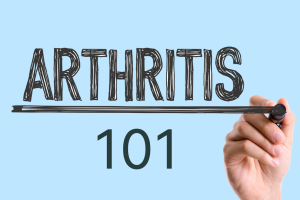 Arthritis is a general term used to describe more than 100 different conditions that cause inflammation, swelling, and pain in one or more joints. These conditions can significantly impact a person’s quality of life, making it crucial to understand the various types of arthritis and how they affect the body. In this article, we will explore the most common forms of arthritis, their symptoms, risk factors, and potential treatment options.
Arthritis is a general term used to describe more than 100 different conditions that cause inflammation, swelling, and pain in one or more joints. These conditions can significantly impact a person’s quality of life, making it crucial to understand the various types of arthritis and how they affect the body. In this article, we will explore the most common forms of arthritis, their symptoms, risk factors, and potential treatment options.
Osteoarthritis (OA)
Osteoarthritis, the most prevalent form of arthritis, is a degenerative condition that primarily affects the cartilage within the joints. Gradual wear and tear lead to the breakdown of cartilage, resulting in bones rubbing against one another, causing joint inflammation, pain, and stiffness. Commonly impacted areas include the hands, knees, hips, and spine.
Symptoms of Osteoarthritis
-
- Joint soreness and discomfort
- Morning stiffness
- Difficulty in coordination
- Progressive disability
Risk Factors for Osteoarthritis
-
- Aging
- Obesity
- Joint injuries
- Family history
- Overuse of the joint
Rheumatoid Arthritis (RA)
Rheumatoid arthritis is an autoimmune disease in which the body mistakenly attacks its own joint tissues, leading to pain and inflammation. Unlike osteoarthritis, which typically affects one or two joints asymmetrically, RA often involves multiple joints in a symmetrical pattern.
Symptoms of Rheumatoid Arthritis
-
- Joint pain and swelling, often in similar joints on both sides of the body
- Numbness, warmth, and tingling sensations in hands and feet
- Rheumatoid nodules beneath the skin near joints
- Possible involvement of internal organs, such as the heart, lungs, and eyes
Risk Factors for Rheumatoid Arthritis
-
- Obesity
- Smoking
- Gender (women are more likely to develop RA)
Juvenile Arthritis (JA)
Juvenile arthritis refers to a group of arthritis types that affect children under the age of 16. The most common form is juvenile idiopathic arthritis (JIA), an autoimmune disorder that impacts children’s joints and can lead to various complications, such as muscle and soft tissue tightening, bone erosion, and joint misalignment.
Symptoms of Juvenile Arthritis
-
- Aching joints
- Swelling, stiffness, and pain in affected areas
- Fatigue and fever
Spondyloarthropathies
Spondyloarthropathies are a group of autoimmune conditions that primarily target the spine and sacroiliac joints, causing pain, stiffness, and inflammation. The most common type is ankylosing spondylitis (AS), which can also affect other joints in the body.
Symptoms of Spondyloarthropathies
-
- Pain and stiffness, particularly in the lower back
- Decreased range of motion in the spine
- Possible bone fusion, leading to spinal deformity and dysfunction
Risk Factors for Spondyloarthropathies
-
- Genetics (individuals with the HLA-B27 gene are at a higher risk)
- Gender (more common in men)
Lupus Erythematosus (SLE)
Systemic lupus erythematosus is a complex autoimmune inflammatory disease that affects various parts of the body, including joints, kidneys, skin, blood, brain, and other organs. This condition can cause joint pain, headaches, chest pain, and a wide range of other symptoms.
Symptoms of Lupus Erythematosus
-
- Joint pain and swelling
- Chest pain
- Fatigue, fever, and hair loss
- Sensitivity to light, rash, and kidney problems
Gout
Gout is a form of inflammatory arthritis caused by the accumulation of urate crystals in the joints. High levels of uric acid in the blood can lead to gout, which typically affects the large joint of the big toe but can also occur in other joints.
Symptoms of Gout
-
- Sudden, severe pain in the affected joint
- Redness, swelling, and warmth in the area
- Possible formation of lumps (tophi) in joints or surrounding tissues
Risk Factors for Gout
-
- High levels of uric acid in the blood
- Diet (consuming purine-rich foods)
- Obesity
- Alcohol consumption
Psoriatic Arthritis (PsA)
Psoriatic arthritis is an autoimmune condition that affects individuals with psoriasis, causing joint pain, swelling, and stiffness. It can impact any joint in the body and can also lead to enthesitis, the inflammation of tendons or ligaments attaching to bones.
Symptoms of Psoriatic Arthritis
-
- Joint pain and stiffness
- Red or silver scaly skin patches
- Itchy or painful skin lesions
Other Conditions that Cause Joint Pain
Several other forms of arthritis and related conditions can also lead to joint pain, including:
- Fibromyalgia, a pain disorder caused by dysfunction in the central nervous system
- Scleroderma, an autoimmune condition that leads to inflammation and hardening of the skin and connective tissues
Arthritis is a complex and diverse group of conditions that can significantly impact one’s quality of life. Understanding the different types of arthritis and their symptoms is essential for proper diagnosis and treatment. If you suspect you may have arthritis, consult a healthcare professional to ensure that you receive the appropriate care and management strategies to alleviate your symptoms and improve your overall well-being.
Contact Us (859-331-3100) For More Information or to Request an Appointment
—
 About Tristate Arthritis and Rheumatology
About Tristate Arthritis and Rheumatology
Tristate Arthritis and Rheumatology is the first and largest Rheumatology practice in the Northern Kentucky area. Founded by Dr. Arthur Kunath in 1986, our rheumatology practice now consists of six doctors who are board certified in both Internal Medicine and Rheumatology and a Physician Assistant. Patients see one doctor (except in emergencies), thereby assuring continuity of care and an individualized doctor-patient atmosphere giving the physician the ability to establish personalized and detailed relationships. Our doctors have received numerous awards, including being listed as “Top Doctors” in Cincinnati Magazine, receiving the Patient’s Choice Award, the Most Compassionate Doctor Award, and the American College of Rheumatology’s “My Doc Rocks” award.


